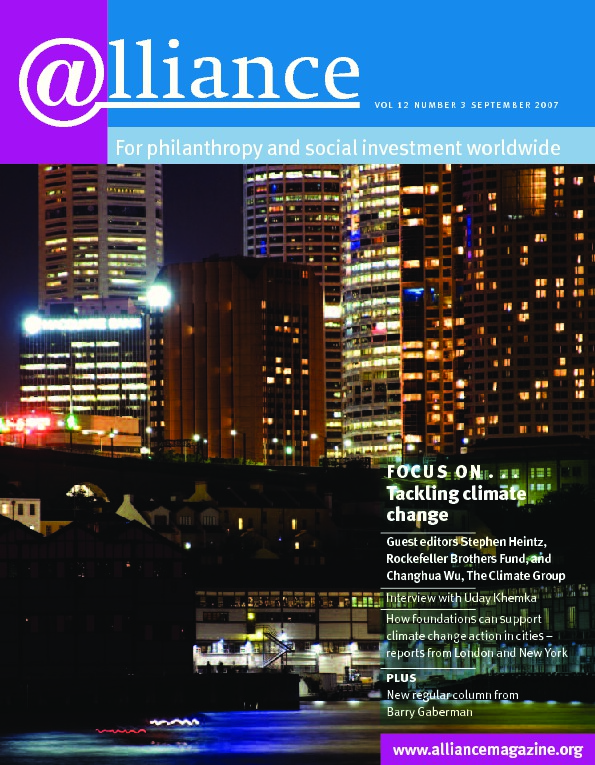The role of civil society in promoting democracy, and the efficacy of externally funded democracy promotion efforts in general, have become something of a political and intellectual battleground in recent years.
The experience of Eastern Europe is central to this debate, both in its post-1989 phase (when it was an inspiration to many other societies struggling for democracy around the world after the fall of the Berlin Wall) and more recently, during the ‘colour revolutions’ in Georgia, Ukraine and elsewhere, which have frightened the life out of President Putin and his counterparts in Beijing.
More often than not, analyses of these experiences are forced into an ideological straitjacket or told by voices that are partial to one side of the story or other. What we lack – and what the democracy debate urgently requires – are objective and rigorous accounts of what happened from which we can learn and improve. This is exactly what Joerg Forbrig and Pavol Demes provide in their excellent new edited volume, Reclaiming Democracy.
Reclaiming Democracy is a collection of 11 essays by distinguished authors, mostly from the region themselves, plus a short preface from Vaclav Havel and a useful overview chapter from the editors. Familiar names include Martin Butora on the Slovak NGO campaign for ‘free and fair elections’, Pavol Demes and Joerg Forbrig on ‘Civic Action and Democratic Power Shifts’, and Ivan Krastev on ‘Where and What Next?’ – a valuable, unromantic conclusion to the book in Krastev’s customary critical style.
Other case studies include post-Tudjman Croatia, IZLAZ 2000 in Serbia (‘An Exit to Democracy’), and chapters that shed further light on whether internal or external funding and direction were more important to civil society efforts to cultivate ‘roses’ in Georgia and ‘oranges’ in Ukraine. The answer, predictably enough, but very importantly, is largely internal, but with outside help being significant at critical moments. All the case studies are well written in an accessible style and with a minimum of jargon.
It is difficult to generalize from these experiences or find clear patterns that are relevant across so many national contexts – much of the richness of the case studies lies in their specific nature and their attention to local detail. Thankfully, the editors resist the temptation to go very far in this direction, still less to see democracy as something that can be ‘exported’ from one part of the world to another.
Nevertheless, the Eastern European experience does provide further support for the conclusion (already noted in contexts as diverse as the Philippines and South Africa) that civil society influence on democratic reforms and practices is very difficult to sustain over the long haul. The intense bursts of civic energy that characterize the run-up to the first or second rounds of democratic elections (and often propel leading civil society activists into political power for the first time) tend to run out of steam, though not immediately, in the years that follow. The struggle to sustain or ‘deepen’ democracy following elections is a much more difficult task.
As the editors conclude in their Introduction, ‘the observed pattern of reinstating democracy through elections does not necessarily provide a model applicable to other post-communist countries. The hardening and sophistication of remaining authoritarian regimes in Eastern Europe, mounting backlashes against democracy assistance, the rising populist threat to liberalism, and the weakening of the European Union’s soft power, place powerful obstacles in the way of continued democratic change.’
All in all, then, there is plenty of work for civil society – and foundations – still to do.
Michael Edwards is director of the Ford Foundation’s Governance and Civil Society Program. His latest book is Civil Society (Polity Press). Email M.Edwards@fordfound.org
Reclaiming Democracy: Civil society and electoral change in Central and Eastern Europe
Joerg Forbrig and Pavol Demes (eds)
German Marshall Fund/ERSTE Foundation (available as pdf)
ISBN 97880969639
To order
http://www.gmfus.org/publications



Comments (0)